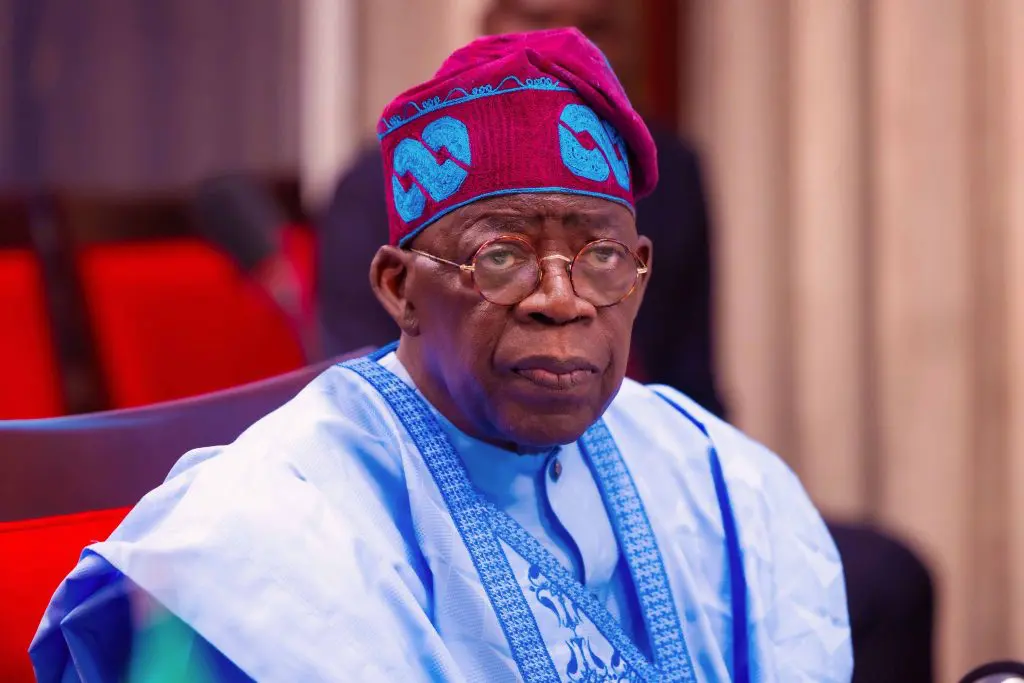President Bola Tinubu has called the Centre Bank of Nigeria (CBN) to halt the implementation of the cybersecurity levy policy and however asked for a review.
This followed the recent introduction of a 0.5% cybersecurity levy on all electronic transactions by the CBN based on the provisions of the Cybercrime (Prohibition, Prevention, etc) (Amendment) Act 2024.
According to the Act, the charges deducted from all electronic transactions will be remitted to the National Cybersecurity Fund supervised by the Office of the National Security Adviser.
As stated in the circular, this is expected to commence by May 20, 2024, but the president has asked the CBN to stop the implementation of the policy.
Also it could be recalled that the National Assembly also last week Commended the CBN to withhold the controversial cybersecurity levy and also asked the CBN to withdraw its circular directing all banks to commence charging a 0. 5 percent cybersecurity levy on all electronic transactions in the Nation.
A senior presidency official, who spoke to ThePunch about the controversial policy said President Tinubu does not want to add to the burden of Nigerians.
The source said, “The President is sensitive to what Nigerians feel. And he will not want to proceed with implementing a policy that adds to the burden of the people.
“So, he has asked the CBN to hold off on that policy and ordered a review. I would have said he ordered the CBN, but that is not appropriate because the CBN is autonomous. But he has asked the CBN to hold off on it and review things again.”
Another anonymous source in the presidency said the president ordered the review of the policy because he did not want his administration to be seen as insensitive.
“If you look at it, the law predates the Tinubu administration. It was enacted in 2015 and signed by Goodluck Jonathan. It is only being implemented now.
“You know he (Tinubu) was not around when that directive was being circulated. And he does not want to present his government as being insensitive. As it is now, the CBN has held off the instruction to banks to start charging people. So, the President is sensitive. His goal is not to just tax Nigerians like that. That is not his intention. So, he has ordered a review of that law,” the source said.
Meanwhile, the Trade Union Congress (TUC) had threatened to mobilise Nigerians and shut down the county if the Federal Government failed to reverse the policy.
The union said it is illogical for the CBN to impose a new levy on citizens who are already dealing with multiple taxation from banks and the government.
In another development, the chairman Senate Committee on National Security and Intelligence, Senator Shehu Umar Buba, APC Bauch South said the cybersecurity levy introduced by CBN was not targeted at individuals or ordinary bank customers.
In a statement issued by Senator Buba last Sunday in Abuja , who sponsored the amendment bill noted that the relevant section of the Cybercrime Act is very clear about the businesses that are required to pay the levy, not the citizens.
He said, “The Act is very explicit about who is responsible for the payment, not Nigerian citizens or individuals. The relevant Section of the Cybercrime Act 2015 listed the businesses required to pay the levy: telecommunications companies, Internet Service Providers, Banks, Insurance Companies, the Nigerian Stock Exchange, and other Financial Institutions.
“The organisations in the sectors have been listed in previous circulars by the Central Bank of Nigeria, especially in 2018. The new circular by the CBN further provided many exemptions.”
He said “It is either 0.005 or 0.5% arithmetically. The figure in the principal act was 0.005 as a fraction, which was converted to the percentage that became 0.5% in the amendment. Therefore, the statistics in fractions and percentages are the same.”
Also Babu said, “The passage of the amendment bill was a collaborative effort involving the government, industry players, civil society;
“…and academia in the contributions and active participation in the public hearing before and endorsement by the two chambers of the National Assembly. After rigorous processes, President Bola Ahmed Tinubu signed the bill into law in February 2024.”
The Senator acknowledged the concerns of Nigerians, civil groups, and other stakeholders about the current economic situation, but was reassured that implementing the cybersecurity law was not meant to punish citizens.
He emphasised that the levy is a collective effort to protect national security and the economy, with the financial burden primarily falling on the specified businesses.
“The Cybercrime (Prohibition, Prevention, etc.) (Amendment) Act 2024, which President Tinubu signed into law in February, imposes a 0.5 percent (0.005) levy equivalent to half the value of all electronic transactions by the businesses specified in the Second Schedule of the Act.
“The levy will be remitted to the National Cybersecurity Fund, which the Office of the National Security Adviser (ONSA) shall administer.
“The circular announcing the levy also exempted some transactions from the cybercrime levy, including loan disbursements and repayments, salary payments, intra-account transfers, and other financial transactions.”
By Sophina Ovuike, Abuja

























